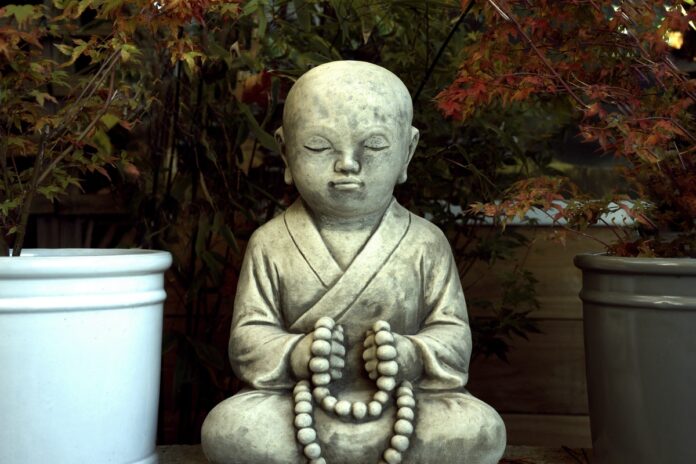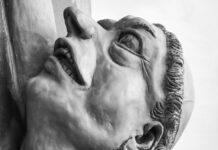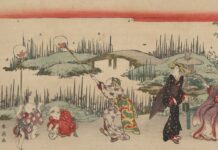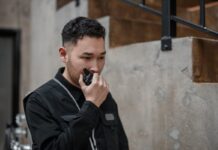The forgotten poet Song Sidao was the son of a minor landlord in Yanzhou. As the boy showed early promise, his father engaged a tutor for him. When Emperor Wen came to power, Song’s father conceived the ambition that Sidao would find a position in the new government. The rumor was that the new dynasty would favor merit over family. When the tutor admitted he had taught Sidao all he could, the boy’s father scraped together the money to send him to Daxing. Song’s father instructed him: “You must enroll in one of the schools and distinguish yourself in every way and pass the examination.”
In Daxing, with the help of a distant cousin, the boy found a place in one of the new academies set up to train officials. He excelled in his studies, including military training. He was particularly good with the bow and arrow, seldom missing his mark. But Song’s greatest delight was reading and reciting the Shijing and Chu Ci masters.
After successfully completing his examination, Song was appointed to a minor post in the Ministry of Revenue. He quickly became popular with his colleagues and superiors. “That Song is good company,” they said. “And he tells such funny stories.”
Song’s first poems were on themes of nature. Later, he began to write satirically about court life, of which he was a sharp observer. His poems circulated widely and people in the capital knew who he was. Song also made up amusing stories that amounted to thinly veiled gossip. Before long, his wit and eagerness to please gained him invitations to banquets where he was usually asked to recite his verses or tell stories. He enjoyed mingling with his betters and he liked the fine food. He became addicted to his social life and, while never neglecting his duties at the Ministry, used his spare time to prepare for every dinner.
At a banquet hosted by a high official in the Ministry of Personnel, Song was encouraged to share his latest poem. He recited some of his early verses about a garden in early spring but was then begged for a story as well. “Something,” his host demanded, “more entertaining than peonies and irises.” Unable to think of anything else on the spot, Song thoughtlessly obliged with the following story.
“During the civil wars, now so gloriously ended by our Emperor, Lord Chang Shimin commanded the cavalry of the Duke of Shu. This Chang had a stable of fine horses, all of whom had proved themselves, never shying even before a line of bristling pikes. One day, while reviewing the stock, Lord Chang caught sight of a snow-white colt. He inquired and was told it belonged to one of his captains. He decided he must possess the colt and train him up himself. He thought of how fine he would look leading his men on a white stallion. So, he took the colt; the captain could hardly refuse. But things turned out badly. The colt missed his dam and the apple orchard beside his old pasture. The older horses in Chang’s stable resented the newcomer, their master’s new favorite, and took every opportunity to kick and bite the colt. And so, no one was happy—not the harassed colt or his bereft dam, not the warhorses who longer rejoiced to see their master. So, not even Lord Chang was happy.”
Everybody at the table knew that the Minister of Cavalry had recently taken a girl of fourteen as a concubine, the daughter of a man severely wounded in a border skirmish with the Turks. The gossip was that the Minister’s four wives were resentful and not slow to show it to either the Minister or the poor girl, who was said to be utterly miserable.
Song’s story was far too direct. If, as he usually was, he had been more circumspect, told some other story, or at least not made the lecherous Chang a cavalry commander, he might not have been dismissed from his post and exiled from the capital.
Song headed north. Sometimes he was able to find work along the way but often he was reduced to begging. He was now a long way from the warm offices, opulent pavilions, silk robes, and ten-course banquets of Daxing. Though his direction was toward home, he could not face his father. So, skirting his native district in Yanzhou, he continued on his way north without a destination. In what the locals still called Tuoba Wei, he came on one of the Ch’an monasteries that had sprung up in the century since the arrival from the West of bearded Bodhidharma. Buddhism was flourishing under Emperor Wen who saw it as a unifying force for his Empire. He declared himself a Buddhist, praised its doctrines, subsidized its temples, and initiated the printing of texts by ordering the widest dissemination of Buddhist scriptures.
Song never took the slightest interest in Buddhism but now, in the north, famished, footsore, and humbled, he was glad to take refuge in a place that welcomed him as it would anyone else, anyone who had not been disgraced and exiled. He was intrigued by the monks who possessed nothing but appeared happy whereas he had nothing and was not happy at all. He conversed a little with the Master whose oblique speech along with his mixture of dignity and plain-speaking impressed him. He worked alongside the young monks and entertained them with stories of court life which they relished just as much as the wealthy diners of Daxing. They made clear, however, their distaste for his satirical verses. Song found that he too no longer cared for them.
Song never tired of asking the Master questions or the Master of answering them. From one week to the next, he put off his departure and, in the end, he never left at all.
***
Chen Hsi-wei, an illiterate peasant-boy with quick-growing hair, survived his perilous journey to the south carrying a vital message inscribed on his scalp. On his return, he declined the rewards of money, land, and a woman. Instead, he begged to be educated. This unprecedented request amused the First Minister who granted it. The future poet was put under the rough tutelage of Shen Kuo, who resented having to teach an ignorant peasant, one whose calligraphy, moreover, was never better than deplorable. While he was studying with Master Kuo in the capital, Hsi-wei came across several poems of Song Sidao; and, though he did not rate them very highly, thinking them frivolous, he did find them diverting. He asked Master Shen about the poet and learned that Song, like so many poets, had been exiled.
Years later, during his travels through the Empire, making verses and straw sandals, Hsi-wei heard that Song had gone to the far north and become a monk. Hsi-wei was curious about such a transformation and, with nothing to prevent him, decided he would like to see the exile. He went north. His inquiries along the way were fruitless until in a tavern in Bohai a jade merchant who was drinking heavily and reminiscing, gave him a clue as to where Song had might have wound up.
“There’s a monastery at the foot of the hills outside Dingxiang. People call it the North Mountain Temple. I only know about it because I stayed there myself—oh, it was years ago. The place was very quiet and spotless—but the food wasn’t to my taste. No meat and no spices.” The man giggled and held up his cup. “Worse yet, not a drop of yellow wine!”
Hsi-wei asked if perhaps the man remembered meeting a certain Song Sidao, a former official in the capital who had turned monk.
“If I met the fellow, I certainly don’t remember. They all look alike, don’t they?”
***
Finding his way to Dingxiang was easy; there was only the one road. Though it was June, the weather that far north was chilly, and the peasants were only just beginning their planting. As usual, Hsi-wei found lodging in sheds and stables, made people sandals, and spoke with them. The district was hardly prosperous. The land was poor, but the peasants’ cottages were clean and their mood generally cheerful. Many were devoted to the Emperor whom they saw as one of their own. One old woman proudly referred to as Wen “our boy from Wei”. It was this woman who gave Hsi-wei directions to the monastery and told him it would be a three-day walk. But Hsi-wei made haste and arrived around noon on the second day.
He was greeted courteously by the Master.
“Welcome, young man. Are you a pilgrim or a traveler?”
“Can’t one be both?” Hsi-wei replied.
This made the Master, Daizu Hongren, laugh.
“It’s true. Some travelers don’t know they are pilgrims until they arrive.”
Hsi-wei came to know that the Master laughed easily and often, but that it was not always clear at what.
Hsi-wei was invited to eat with the monks—rice and vegetables and water. No spices and no yellow wine. But the old proverb that the appetite that makes the meal is true. Hsi-wei was hungry.
It was the monks’ custom to eat in silence but, after the meal, Hsi-wei asked Master Daizu if he might steal a bit of his time.
“Only what can be returned can be stolen,” said the Master sententiously, then chuckled. “We like people to ask questions.”
Hsi-wei explained that he had come looking for Song Sidao, who had been an official in the capital and a poet of some note.
“I’ve learned that he came north. Is he perhaps here?”
“Ah. I have to tell you that Song Sidao died twice. The first time was when he became a monk and took the dharma name Shi Xing. He was one of the most enlightened. He was our Master and my teacher. His second death, I regret to say, was two years ago. We keep his ashes in the temple in a place of honor. Though I’m not fit to wash his feet, I am Master Shi Xing’s unworthy successor.”
Hsi-wei wished to know more.
“I could try to describe him but I would fail. We prefer to preserve the memory of the enlightened in stories.”
“Very well,” said Hsi-wei. “I also like stories and so did Song Sidao. In fact, if what I’ve been told is true, it was a story that led him here.”
Daizu laughed. “Look, the day has turned pleasantly warm. Our apple trees are just beginning to bloom. Let’s go sit in the orchard. It was Master Shi’s favorite place to meditate.”
Under an apple tree, Master Daizu related story after story about his teacher, whom he not only revered but loved.
On my first day as an apprentice monk—a samanera—I asked Shi Xing, “Master, how should I study?” I had just arrived and we were standing in front of the temple.
Shi pointed upward. “Pretend you are that roof. Each day one of your tiles falls off. At first, you will be only a bad roof but, eventually, you will be no roof at all.”
One day Master Shi came across a group of us working in the vegetable patch. We were about to pull out some weeds. Seeing the Master, we paused.
“What are you doing?” Shi Xing demanded.
“Tearing up weeds, Master.”
“I see,” said Master Shi. “And what is a weed?”
Puzzled, we looked at one another, then Xuan replied. “A weed is a plant growing where you don’t want it to.”
“Exactly,” said Master Shi. “A living thing. Humble yourselves.”
On his first day, a samanera asked, “Master? Please, can you tell me where I fit into the cycle of being?”
Shi Xing replied with a shrug, “Who said you do?”
A new magistrate stopped by the monastery. He was a haughty man who had come with an armed escort to inspect the district. Master Shi asked what his mission was. The magistrate said that revenues were lower than they should be and he had come to extract their taxes from the cheating peasants.
“On what authority do you take from the peasants?” asked Shi Xing calmly.
The magistrate glared and drew himself up. “On what authority? The Emperor’s, of course!”
Master Shi bowed to the magistrate. “The people may not always be in the right,” he said, “but they will always be the people. The Son of Heaven may always be in the right, but he won’t always be the Emperor.”
Shi Xing overheard us praising Shen Chou-lai, a monk who recited the sutras with particular feeling. “I’ve heard Shen Chou-lai. It’s true; he’s a virtuoso who recites with love—but what is it he loves?”
We were sitting quietly after reciting prayers. A young monk to Shi’s left broke the silence. “Master, we praise the compassionate Buddha. What is compassion?” At once, Master Shi seized his bamboo stick and struck the monk to his right a stinging blow. Then he turned back to the monk on his left. “There. Did you feel that?”
One day Shi Xing was walking in this orchard with a peasant who often came to pray with us. The fellow asked the Master if it were his duty to obey all the Emperor’s commands. Master Shi pointed up at one of the highest branches. “That apple up there might not want to fall from the tree.”
One fine spring day Shi was working beside us as we cultivated the field. A samanera paused and leaned on his hoe. “Master,” he asked, pointing to the sky, “is the Buddha-nature as pure as that little white cloud up there?”
Master Shi looked across the field to our shed where a dog was crouching. “You see that dog shitting over there? That is the Buddha-nature.”
A well-to-do traveler from the capital stayed the night. Before leaving in the morning, he asked Master Shi, “Why do you monks support yourselves by begging? It robs you of dignity.”
“Did you eat your dinner last night?” asked Shi.
“Yes. I was served along with everyone else.”
“That was nice, wasn’t it?” said Shi Xing.
Daizu had many such stories.
***
Hsi-wei stayed with the monks for three nights and joined them each afternoon for an hour of sitting. Before taking his leave, he made the monks six four pairs of sandals and this poem.
SONG SIDAO AND MASTER SHI XING
Song Sidao was vain in the way of poets.
In the way of courtiers, he was witty and acerbic.
By his wit he earned ten-course banquets and jade wine.
Telling a court poet to please is telling a fish to swim.
To please some, Song would sting others.
Song went too far and was sent away to the north.
Unknowing, he found himself on Bodhidharma’s track
starving and exhausted, chastened and humbled.
The North Mountain Temple took him in.
The noise of the banquet hall was drowned out by
quiet fasting, clever sallies by silent meditation.
As Song became less clever, he grew more wise.
When he renounced fame, he became famous.
As Song Sidao he wrote ephemeral verses.
As Shi Xing he became an abiding poem.
About the Author

Robert Wexelblatt is a professor of humanities at Boston University’s College of General Studies. He has published eight collections of short stories; two books of essays; two short novels; two books of poems; stories, essays, and poems in a variety of journals, and a novel awarded the Indie Book Awards first prize for fiction.
















